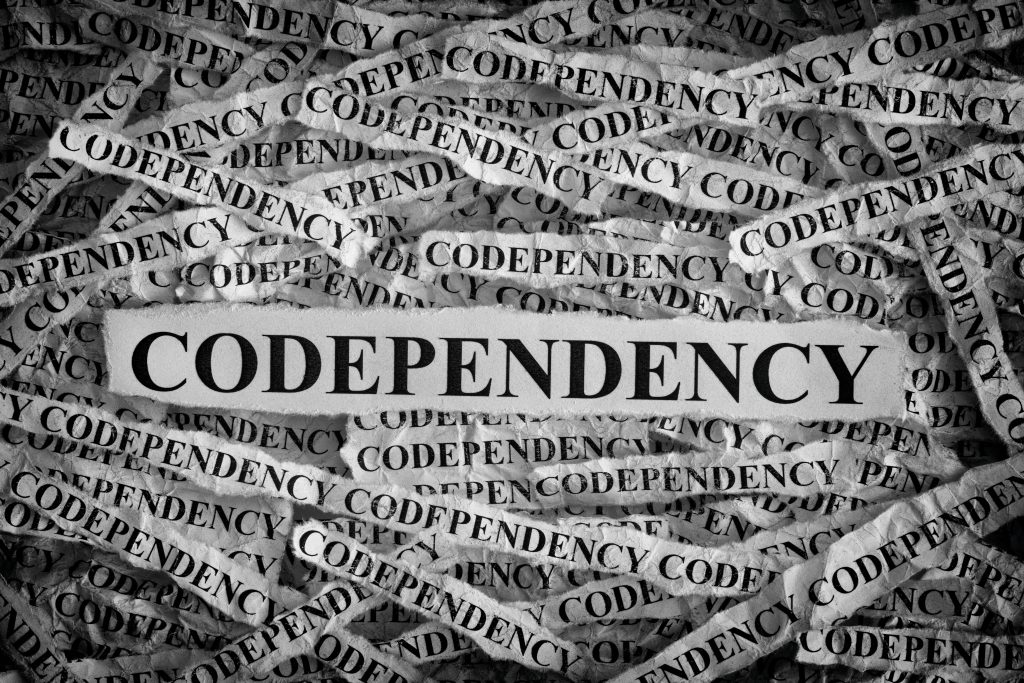Codependency:
The term “codependency” describes a situation in which one person puts the needs of another person before their own needs and interests. This means that there is a situation in which the interests of a person become relegated to second in priority to the interests of another person. For example, in the case of alcoholism, when the codependent family member makes excuses for, provides money or support for, or in any other way makes allowances that aid or assist in any way (other than detoxification and encouraging abstinence from alcohol) the alcoholic behaviors and activities of an alcoholic, that is codependency.
Addiction:
Obviously, alcoholism is a form of addiction, but, of course, there are other forms of addiction, such as drugs. Forms of addiction and codependency are often directly related and they have the effect of reinforcing each other. Thus, often, the addict requires some kind of “backup” or support, such as making excuses for their behavior to other people, providing them with circumstances and conditions that encourage, support, or do not discourage the alcoholic habit and behaviors, having knowledge they are hiding alcohol and drinking on the sly but doing nothing about it, trying to provide for them a stable social and family setting that allows the alcoholic behavior to continue, providing money or financial support which contributes directly or indirectly to the alcoholic behavior. These are things that contribute to or do not mitigate against the addictive behavior. Therefore, the addict is considered to the “dependent,” and the individual who contributes to that behavior in some way is considered to be “co-dependent.” The addict is the “dependent” and the supporter is the “caretaker” or “codependency in this situation of codependency, both people, not just the addict-alcoholic is guilty of unhealthy behavior.
The codependent situation is considered to be unhealthy psychologically for the caretaker who must subordinate their own best needs and interests and the appropriate concern for the health of the addict for what are seen to be the best interests of the addict, supporting in some way the addiction. Both partners in this relationship are responsible for inappropriate behaviors: The addict because of the adverse psychological and physical effects of the substance abuse, and the caretaker by supporting, contributing to, and not making efforts to encourage the termination of the addictive behavior. In this situation, the caretaker is also suffering from inappropriate and maladaptive behavior as much as the addict is. The result for both is unhealthy psychological responses and behaviors.
Causes of codependency:
The causes of the codependent behavior by the caretaker are often stated in terms of “to keep peace in the family,” to hide the addictive behavior from family, friends, or social disclosure, to protect the addict from him or herself or other people, and/or to present a false impression that things are “normal,” that there is no problem. The reasons for the caretaker’s codependent activities varies with the personalities of the addict and the codependent, but, for the caretaker, there are always “excuses” rather than a direct facing of the facts about the addict’s addictions and behaviors.
Symptoms of codependency:
- A low sense of self-esteem accompanied by feelings of inadequacy, guilt, and shame for the supportive codependent behavior
- An inner need to subordinate and sacrifice their own interests for the perceived happiness of other people
- Having difficulty in saying “no”
- Inability to establish healthy personal boundaries for themselves
- Difficulty in accepting responsibility for their caretaker and codependent actions
- A desire to control situations superficially rather than realistically
- Inability to rationally control their own personal feelings
- Often, they have poor communication skills
- Obsessive thinking about the thoughts and reactions of other people
- Focus on their own anxieties and fears in the addict-caretaker relationship.
- Are often dependent on other people
- They may have problems with and fear of intimacy with other people
- Feelings of resentment, despair, and/or depression
Addiction-related codependency is a learned behavior arising from emotional needs and wants, and the first step in dealing with and ameliorating codependent behavior with addicts is positive treatment by psychological counseling. The purposes of the counseling is to identify the core elements in the personality that contribute to the codependent behavior, specifically identify the coidependent behaviors, and establish a program to terminate the codepndent behaviors. Also, of course, the addict him or herself who is the object of the caretaker behavior can benefit directly from psychological counseling. Thus, in non-emergency situations, the consultation with a professional psychologist is a logical first place to start.















